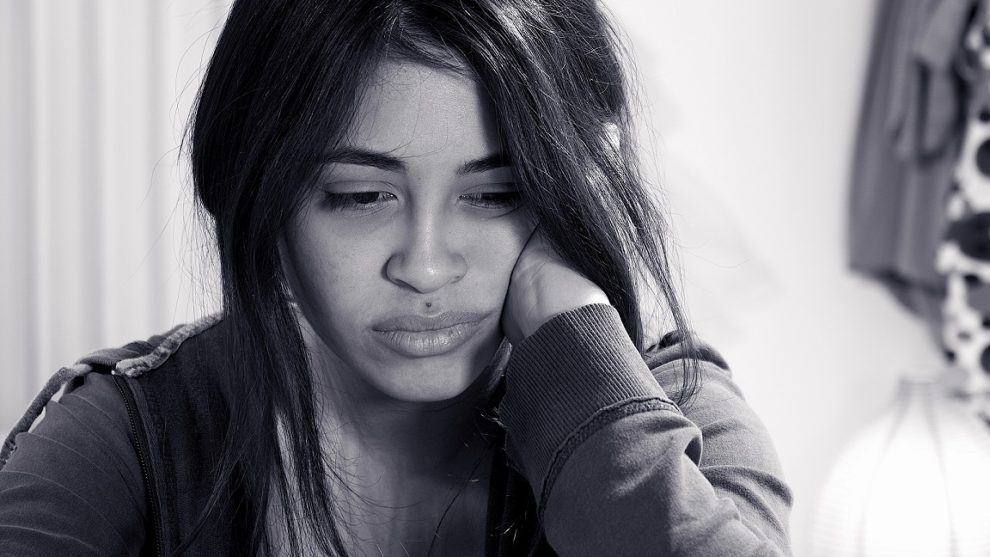Not everybody who is sad is depressed, and not everyone who is depressed is sad. Sounds odd, but to mental health professionals this difference is paramount to the diagnosis and treatment of one of the most debilitating and pervasive mental illnesses of our age – depression.
Understanding the difference between sadness and depression allows us to determine if treatment is necessary, facilitate recovery and determine the effectiveness of treatment over time. The frequency and intensity of these feelings gives us insight into whether these feelings are “normal” and temporary or an indication of a persistent state.
As a rule, if the frequency and intensity of these feelings interfere with the ability to lead a functional life, then treatment is indicated. But how do we know, which is which?
What Is Sadness?
Sadness is a NORMAL human emotion. Some scholars have called it one of the six basic emotions. In general, our ability to experience sadness is genetically encoded. It is an adaptation that allows us to deal with the emotional responses to certain kinds of stress. Usually, sadness is an emotional reaction to difficult times, disappointments and loss. For example—financial stress, losing out on a promotion or the death of a family member or close friend.
Most people who suffer from sadness can identify an event or trigger for their emotions: a romantic disappointment, failing at school, loss of a loved one, being abandoned, etc.
For the most part sadness is temporary. Feelings of sadness fluctuate during the course of our day. The distractions of work and other life activities “shut off” these feelings unless a trigger—seeing a picture, a smell, the mention of a name or familiar location—forces us to think about the event in the present moment, thus bringing back a flood of emotion.
Sadness is also time limited. That is to say that it lessens over time as we adapt to the new reality. When sad, we may cry, talk about the event or loss and contemplate acceptance, until it becomes less intense and eventually fades away.
If feelings of sadness persist and become more intense over time, it is an indication that a depressive illness may be at play.
What Is Depression?
Depression is an illness of the brain that is intense, consistent and progressive. Those suffering from depression can be debilitated by overwhelming emotions, uncontrolled thoughts and physical symptoms such as fatigue and chronic pain.
Depression is for the most part, genetic, which means it is inherited. The condition runs in families and multiple people in a familiar group will typically suffer from the illness. It can be triggered by the same stresses that cause sadness.
Unlike “normal” sadness, depression does not decease with time. On the contrary, depression will increase in intensity and frequency to a point that is can literally disable a person suffering from it. It is believed that more than 17-million people suffer from at least one depressive episode every year. It is one of the most debilitating illnesses in Medicine.
In diagnosing depression, mental health professionals look for certain clues. As a rule, a diagnosis of depression mandates that an individual experience a depressed mood that persists throughout the day, regardless of distractions, for a period of at two-weeks or more.
A patient who suffers from depression often experiences difficulty sleeping—either too much or too little, changes in appetite—eating too much, too little, or not at all, that often leads to noticeable weight loss or gain. Suffers often complain of persistent fatigue, lack motivation for any endeavor, problems concentrating, an inability to enjoy daily activities.
These people can also suffer from uncontrolled thoughts, often negative, that distract from their ability to focus and be productive. Frequently, these people feel so bad that they think they would be better off dead (suicide) than to continue living this way.
Some patients exhibit all the aforementioned symptoms, but do not feel sad. Fatigued, angry, fed-up, bored, apathetic and tired, but not sad. This is more typical in men since sadness, culturally, may be seen as a sign of weakness.
Depression And You
If you suffer from these symptoms, it is important to contact your physician and request a comprehensive evaluation.
Untreated depression has serious consequences. This can include an inability to work, to socialize well with friends and family, chronic stress with its biological consequences, and significantly higher risk of death by suicide. It is also known that people who suffer with untreated depression suffer chronic medical problems like diabetes, hypertension and hormonal problems. Simply stated, depression may shorten your lifespan.
We will dedicate a full article to discuss available treatments for depression, including medications, therapy and social rehabilitation. Remember, appropriate treatment cannot be achieved without a comprehensive evaluation, diagnosis and understanding of the patient’s life context.
Visiting your physician and inquiring about depressive symptoms may open the door for healthy dialogue about your issues, difficulties and options for better functioning and a more productive life.
Want to learn more? Listen to Dr. Lauro Amezcua-Patino’s podcasts in English here or En español here.












